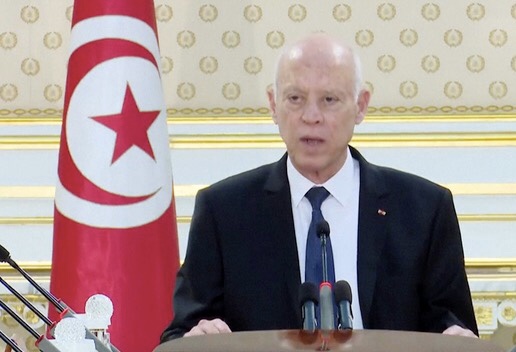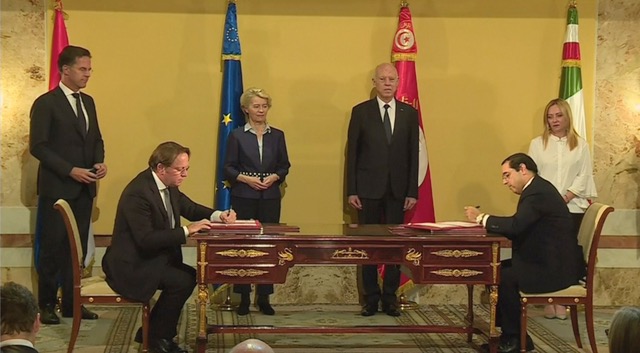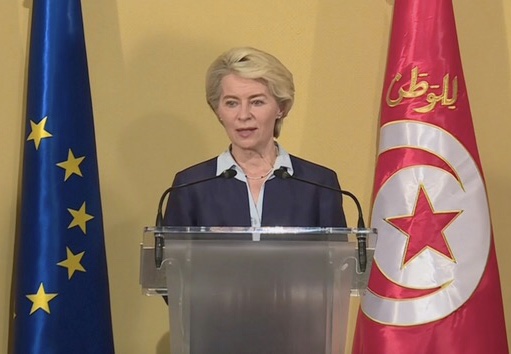Just last month the Tunisian President, Kais Saied, publicly denounced the idea that Tunisia should become ‘Europe’s border guard’, but this weekend he has ratified an agreement, which will ensure Tunisia, becomes just that.
In a deal struck on Sunday 16th July, Tunisian President Kais Saied, ratified the partnership in Tunis in the company of the EU President, Ursula von der Leyen, the Prime Minister from the Netherlands, Mark Rutte and the Prime Minister of Italy, Giorgia Meloni on their second visit to Tunisia’s capital, in which they offered more than €100million of funding to ‘strengthen border controls’.
Tunisia’s poor treatment of migrants gives human rights organisations cause for concern
Human rights commentators and EU lawmakers have lined up to criticise the move as a sign of Europe’s desperation, given the much-publicised record of Tunisia’s abuse and mistreatment of migrants. Human rights groups have also expressed concerns that Tunisia does not have a functioning asylum system, which means that asylum seekers are dependent on a mission by the UN High Commissioner for Refugees or will need to travel on to other countries to register a claim.
EU President’s tone echoes populist and far-right trends across Europe
The language used by EU President, Ursula von der Leyen echoed the mantra of the growing populist and far-right trends across Europe, with a focus on cracking down on criminal networks and with little recognition of the plight and rights of the migrants themselves. She said:
‘This is an investment in our shared prosperity, stability and in future generations. The reasons for it are compelling. Tunisia and the European Union are bound by their history and geography and shared interests….we will work with Tunisia on an anti-smuggling operational partnership. We will also increase our coordination on search and rescue operations and we agreed that we will cooperate on border management, anti-smuggling, and addressing root causes in full respect of the international law. For this we will make available more than €100million of new funding. We need to crack down on criminal networks of smugglers and traffickers.’

Tunisian President, Kais Saied addressed the press conference in what was seen as a clear attempt to dispel recently voiced heightened concerns in respect of the treatment of migrants, not least with the recent abandonment of upwards of 500 Sub-Saharan migrants on Libya’s borders by the Tunisian authorities. He said:
‘Here we are in upmost need for a collective agreement about inhumane migration and displacement which is masterminded by some criminal networks. The Tunisian people have provided for all these displaced migrants. Anything they need will be provided, with full hospitality and unlimited generosity.’

Additional funding and support from the IMF was promised in a bid to assist the propping up of Tunisia’s economy in order to avoid the stimulus of yet more people attempting to cross the Mediterranean into Europe. Tunisia is regarded as a key launchpad for migrants and asylum-seekers, attempting the perilous journey to Europe. In fact the agreement hints at developing processes which will see a return of migrants already in Europe back through Tunisia to their country of origin – which has raised particular concerns within a number of human rights organisations. Whilst the agreement refers to the creation of legal channels for migration, the emphasis was placed more on such channels being used solely for ‘seasonal employment opportunities’.
The new agreement and the substantial funding from the EU comes just a couple of weeks after France pledged to support Tunisia with 26 million euros in order to curb the flow of irregular migrants across the Mediterranean. The arrangement with France according to French Interior Minister, Gerald Darmanin, who also visited the Tunisian President last month, was to allow Tunisia to:
‘acquire the necessary equipment and organise useful training, in particular for Tunisian police and border guards’
Crucially, although the partnership was agreed on the weekend, there is a recognition that parts of the IMF reform package, which is an intrinsic part of the deal, are still in dispute.

















